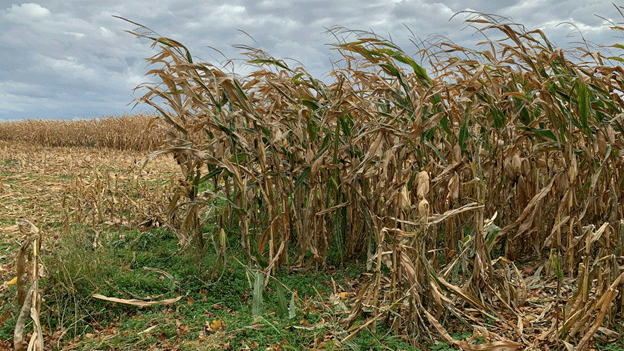In a significant move that has drawn both national and international attention, Mexico has fortified its stance on genetically modified (GM) corn and glyphosate use. Citing health risks associated with these agricultural technologies, Mexico has released a scientific report supporting its ban on GM corn and glyphosate, two substances often at the center of global debates over food safety and agricultural practices.
The report outlines several serious health risks linked to the consumption of GM corn and the widespread use of glyphosate, a widely-used herbicide. According to the findings, these risks include liver damage, reproductive issues, and an increased risk of cancer, with particular concern over the rise in nonalcoholic fatty liver disease. These health impacts have been exacerbated by the increasing prevalence of glyphosate in conventional farming practices, and the report emphasizes the need for stricter regulations to protect both public health and biodiversity.
The U.S. Challenge and Mexico’s Defense
The U.S. government has challenged Mexico’s GM corn ban under international trade rules, arguing that the ban unfairly restricts trade and could harm U.S. agricultural exports. However, Mexico rejects the U.S. claims, stating that the evidence provided by the U.S. is outdated and inadequate in addressing the health risks now understood to be associated with GM crops and glyphosate. In response to these challenges, Mexico has taken steps to enshrine its GM corn restrictions in the national constitution, marking a firm commitment to food sovereignty and public health.
Claudia Sheinbaum, president of Mexico, emphasized the importance of this decision, stating, “this is the best defense we have for biodiversity as well as for our health.” This commitment aligns with Mexico’s broader effort to protect its agricultural heritage and limit the influence of multinational corporations in shaping food production practices.
Health Risks and Global Concerns
The growing concern over GM crops and glyphosate extends beyond Mexico, as more studies highlight potential long-term health risks to humans and animals. The rise in liver diseases, especially nonalcoholic fatty liver disease, has prompted scientists to look at the role of chemicals and GM foods in altering biological systems. Critics of GM crops argue that these foods have not been studied sufficiently for long-term health effects, especially when used in combination with chemicals like glyphosate.
In addition to the health risks, there are mounting concerns about the environmental impacts of glyphosate, which has been linked to soil degradation, water contamination, and declining biodiversity. As governments around the world face pressure from environmental groups and public health advocates, more countries are reevaluating the use of GM crops and chemical inputs in their farming systems.
Mexico’s Vision for Food Sovereignty
Mexico’s decision to pursue food sovereignty is about more than just public health; it’s a commitment to preserving traditional farming methods and protecting the nation’s biodiversity. The government’s stance emphasizes the importance of maintaining indigenous agricultural practices, which are seen as more sustainable and better for long-term food security. By pushing back against GM crops and glyphosate, Mexico is aligning its policies with a growing movement for sustainable agriculture and ecological farming.
A Global Dialogue on Food Safety and Sustainability
Mexico’s firm position on GM corn and glyphosate underscores a critical global conversation about food safety, agricultural sustainability, and the balance between innovation and public health. As concerns over rising health issues linked to GM foods and chemicals continue to grow, Mexico’s precautionary approach may inspire other nations to reconsider the widespread use of GM technology in agriculture. The challenge ahead will be finding a balance between technological advancements in agriculture and ensuring the health of future generations and the planet.
Error





